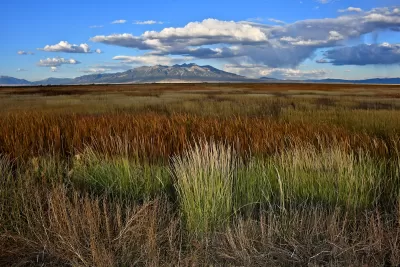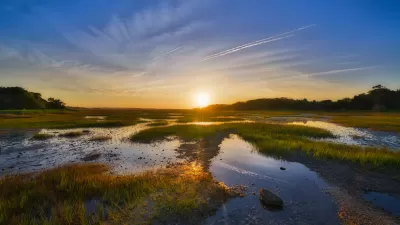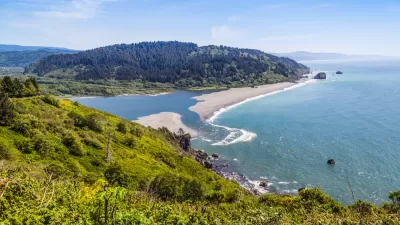The bill would reinstate protections for wetlands and seasonal streams eliminated by a 2023 Supreme Court ruling.

Colorado legislators approved a bill that will extend new protections to the state’s streams and wetlands after the U.S. Supreme Court reduced protections for wetlands last year, reports Daniel C. Vock in Route Fifty. “The issue of wetland regulations is particularly poignant in Colorado, where two-thirds of the state’s waters are temporary in nature and lack year-round flow, according to a friend-of-the-court brief the state filed in the Supreme Court case.”
Last year’s ruling, which states that “the Clean Water Act only applies to wetlands that have a continuous surface connection to bigger bodies of water,” makes states responsible for enacting — and funding — more stringent regulations that apply to non-contiguous wetlands and seasonal streams.
According to Vock, “Roughly half the states relied on federal rules to determine what waterways they would regulate for dredging and filling activities before the Supreme Court ruled, according to an analysis by James McElfish, an attorney at the Environmental Law Institute.”
FULL STORY: After Supreme Court decision left wetlands unprotected, Colorado steps in

Study: Maui’s Plan to Convert Vacation Rentals to Long-Term Housing Could Cause Nearly $1 Billion Economic Loss
The plan would reduce visitor accommodation by 25,% resulting in 1,900 jobs lost.

North Texas Transit Leaders Tout Benefits of TOD for Growing Region
At a summit focused on transit-oriented development, policymakers discussed how North Texas’ expanded light rail system can serve as a tool for economic growth.

Why Should We Subsidize Public Transportation?
Many public transit agencies face financial stress due to rising costs, declining fare revenue, and declining subsidies. Transit advocates must provide a strong business case for increasing public transit funding.

Alabama: Trump Terminates Settlements for Black Communities Harmed By Raw Sewage
Trump deemed the landmark civil rights agreement “illegal DEI and environmental justice policy.”

Dear Tesla Driver: “It’s not You, It’s Him.”
Amidst a booming bumper sticker industry, one writer offers solace to those asking, “Does this car make me look fascist?”

A Visual Celebration of Manhattan’s Chinatown Elder Community, Through Food
Lanterns, cafeteria trays, and community connection take center stage in this stunning photo essay.
Urban Design for Planners 1: Software Tools
This six-course series explores essential urban design concepts using open source software and equips planners with the tools they need to participate fully in the urban design process.
Planning for Universal Design
Learn the tools for implementing Universal Design in planning regulations.
City of Santa Clarita
Ascent Environmental
Institute for Housing and Urban Development Studies (IHS)
City of Grandview
Harvard GSD Executive Education
Toledo-Lucas County Plan Commissions
Salt Lake City
NYU Wagner Graduate School of Public Service





























